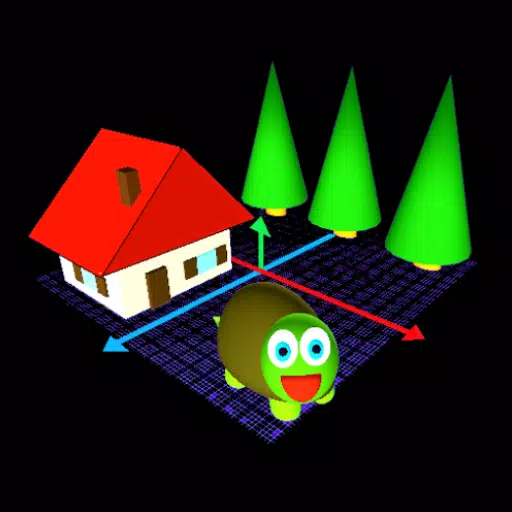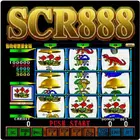Originally conceived as a spin-off of the Shin Megami Tensei series, the Persona franchise has evolved into a juggernaut within the world of modern RPGs. With its sprawling narrative arcs, diverse multimedia adaptations including anime and stage plays, Persona has carved a significant niche in popular culture. Its momentum shows no signs of waning, as evidenced by the recent release of Persona 3 Reload, available on PlayStation 5, Xbox Series X, and PC. Newcomers eager to dive into the series may wonder where to begin. This comprehensive guide will walk you through every game and spin-off in the franchise, providing insights on the best entry point for beginners, and detailing both the chronological and release order of the series.
Jump to:
- How to play in order
- How to play by release date
- Upcoming releases
How Many Persona Games Are There?
There are currently twenty Persona games in total. These include mainline entries and various spin-offs, with several featuring enhanced versions that add new story content or remakes. While we won't list direct ports or remasters, we will highlight alternate versions of each game.
Which Persona Game Should You Play First?
For those new to the series, starting with Persona 3 Reload, Persona 4 Golden, or Persona 5 Royal is a great choice. These represent the latest iterations of the third, fourth, and fifth mainline entries, respectively. They are available on PC and most major consoles, with the exception of Persona 3 Reload, which is not available on Nintendo Switch.
New players can jump into any of these games without worrying about missing out on previous storylines. Each game introduces a fresh narrative with new characters, making them ideal starting points. To decide which game suits you best, consider watching gameplay videos and exploring the social link systems of each game to see what resonates with you.
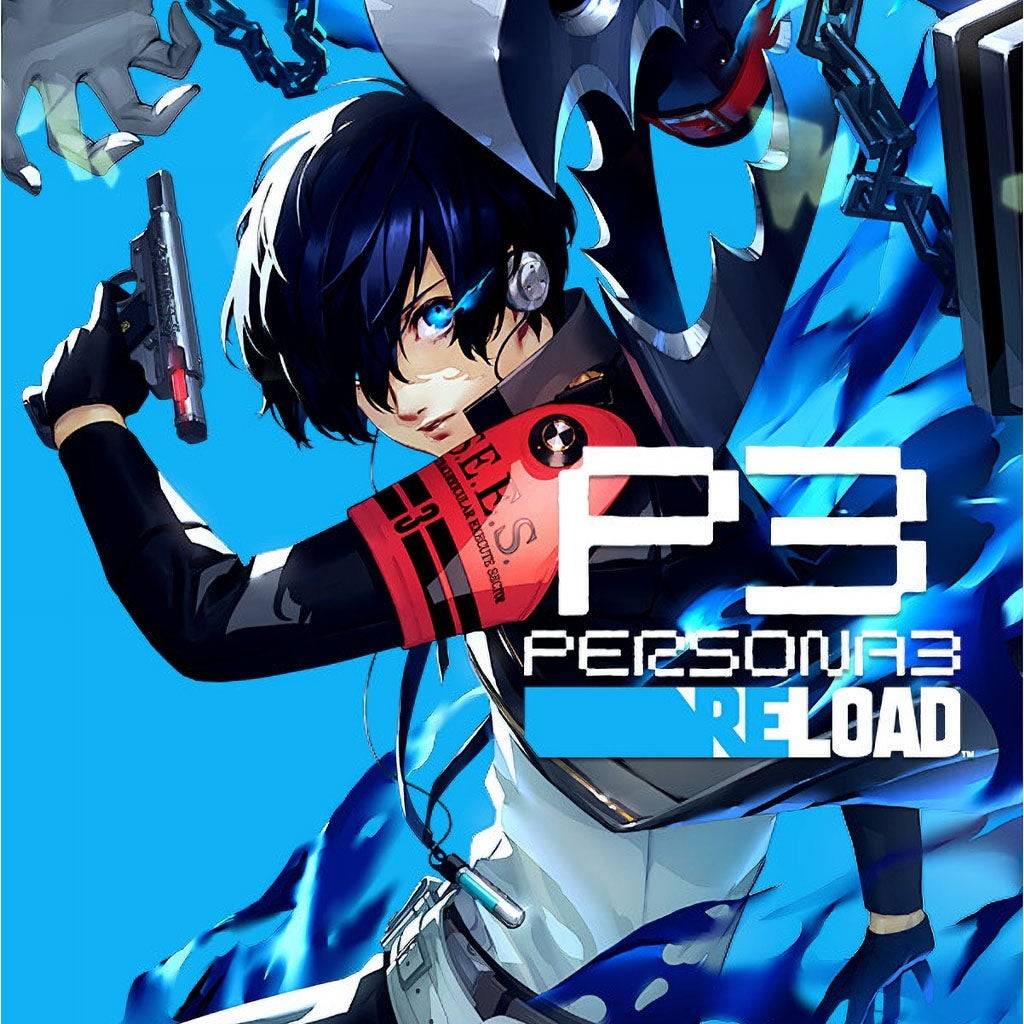
Persona 3 Reload
54 Available on PS5, PS4, and Xbox Series X. See it at Amazon
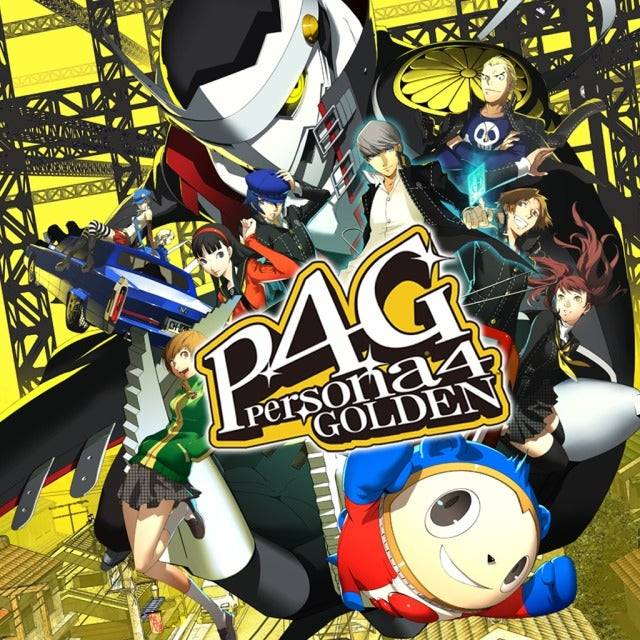
Persona 4 Golden
42 Available on PC, Xbox, PS5, and Nintendo Switch See it at Nintendo

Persona 5 Royal
103 Available on PC, Xbox, PS5, and Nintendo Switch See it at Amazon
Every Persona Game and Spin-Off in Chronological Order
These blurbs contain mild spoilers for each game, including characters, settings, and story beats.
1. Revelations: Persona (1996)
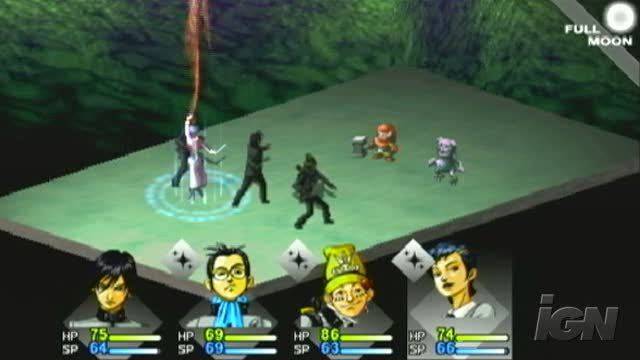 The inaugural game in the series, Revelations: Persona, was Atlus's response to the success of Shin Megami Tensei: If…, another spin-off that centered around high-schoolers battling demons. Building on this concept, Revelations: Persona delivered a full-fledged dungeon-crawling RPG, where a group of high school students combats a supernatural uprising in the town of Mikage-cho.
The inaugural game in the series, Revelations: Persona, was Atlus's response to the success of Shin Megami Tensei: If…, another spin-off that centered around high-schoolers battling demons. Building on this concept, Revelations: Persona delivered a full-fledged dungeon-crawling RPG, where a group of high school students combats a supernatural uprising in the town of Mikage-cho.
Throughout their journey, they harness the power of their Personas to confront shadows and navigate dungeons filled with random encounters, all while leveling up and strengthening their team. Revelations: Persona laid the groundwork for the franchise, introducing key elements like Persona combat, the Velvet Room, and a youthful cast of heroes.
2. Persona 2: Innocent Sin (1999)
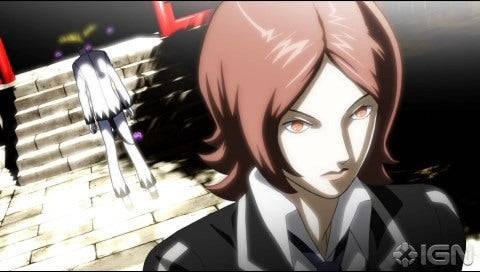 The second installment, Persona 2: Innocent Sin, launched in 1999. It follows a new group of high school students led by protagonist Tatsuya Suou, who embark on a quest to thwart the plans of a mysterious villain known as Joker and his cult, the Masked Circle.
The second installment, Persona 2: Innocent Sin, launched in 1999. It follows a new group of high school students led by protagonist Tatsuya Suou, who embark on a quest to thwart the plans of a mysterious villain known as Joker and his cult, the Masked Circle.
The game revolves around an evil plot where rumors spreading through the town of Sumaru materialize into reality. Players once again explore dungeons, harness Personas, battle shadows, and level up their party. Unlike other entries, Innocent Sin received a direct sequel the following year, Persona 2: Eternal Punishment, continuing the story.
Read our review of Persona 2: Innocent Sin.
3. Persona 2: Eternal Punishment (2000)
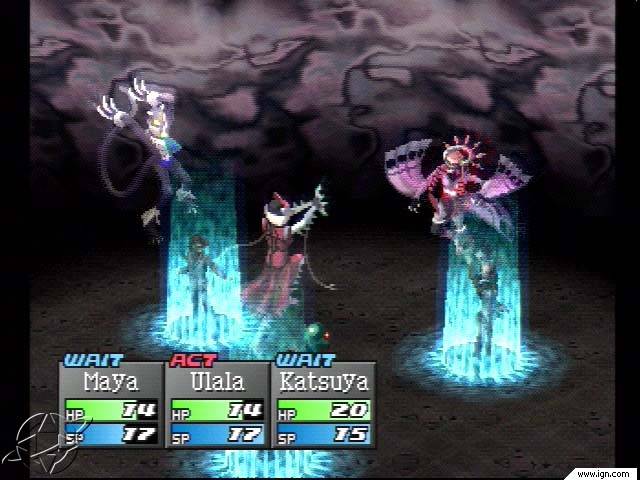 Following the events of Innocent Sin, Eternal Punishment elevates side character Maya Amano to the protagonist role. Tasked with investigating a new rumor about the Joker Curse, Maya and her allies soon find themselves confronting a familiar enemy.
Following the events of Innocent Sin, Eternal Punishment elevates side character Maya Amano to the protagonist role. Tasked with investigating a new rumor about the Joker Curse, Maya and her allies soon find themselves confronting a familiar enemy.
Continuing the narrative of Innocent Sin, the game retains its turn-based, dungeon-crawling gameplay, as players build their party and utilize their Personas to battle shadows.
Read our review of Persona 2: Eternal Punishment.
4. Persona 3 (2006) / Persona 3 FES (2007) / Persona 3 Portable (2009) / Persona 3 Reload (2024)
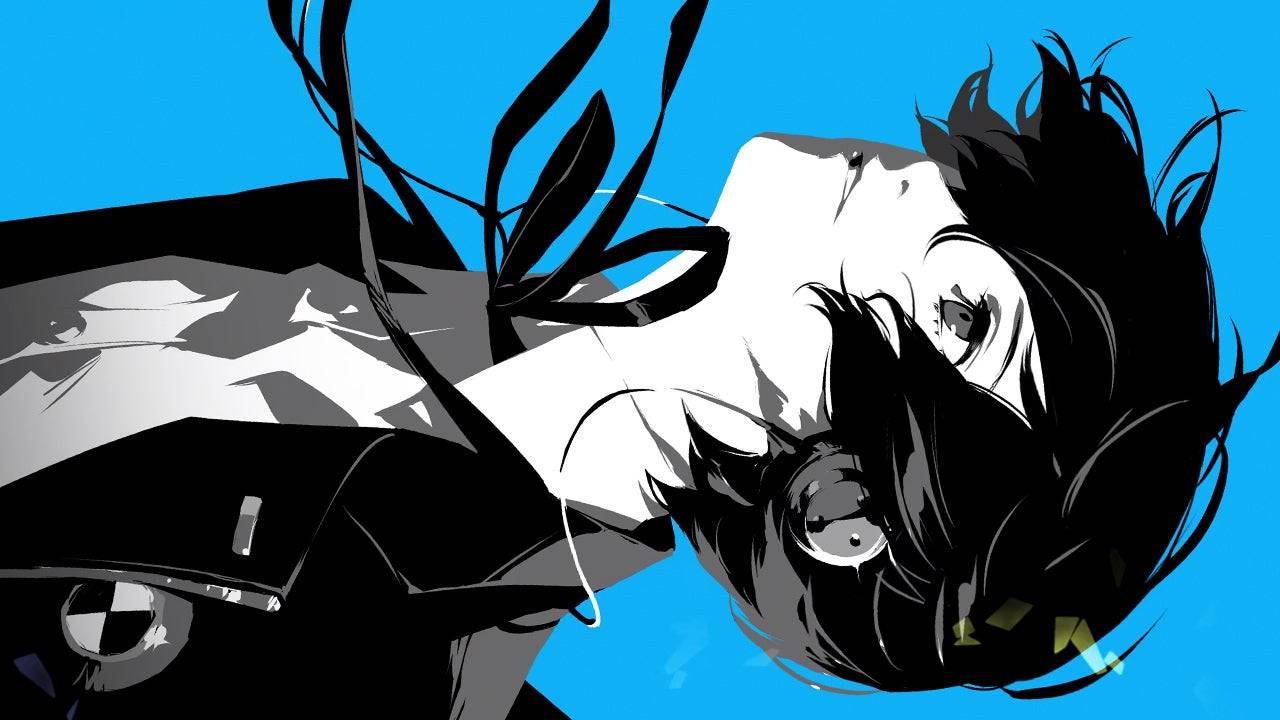 Persona 3 marked a significant evolution in the series, emphasizing its high-school setting and introducing a daily calendar system. The game splits players' time between attending school, building friendships, and studying, and venturing into the supernatural realm of Tartarus to fight shadows.
Persona 3 marked a significant evolution in the series, emphasizing its high-school setting and introducing a daily calendar system. The game splits players' time between attending school, building friendships, and studying, and venturing into the supernatural realm of Tartarus to fight shadows.
The narrative centers on high school student Makoto Yuki, who discovers he can enter a mysterious time called the Dark Hour, during which people are trapped in coffins and a demonic tower emerges from his school. Joining forces with his classmates, Makoto uncovers a sinister plot threatening the world. Persona 3 is renowned for introducing social links, daily activities, and other mechanics that have become hallmarks of the franchise.
Read our review of Persona 3 Reload.
Alternate Versions of Persona 3:
Persona 3 has been re-released multiple times. Persona 3 FES added an expansion including The Answer and an alternate campaign with a female protagonist. Persona 3 Portable offered a handheld version with the female protagonist route but omitted The Answer. Persona 3 Reload, a complete remake for modern consoles, does not include The Answer or the female protagonist route.
5. Persona 3: Dancing in Moonlight (2018)
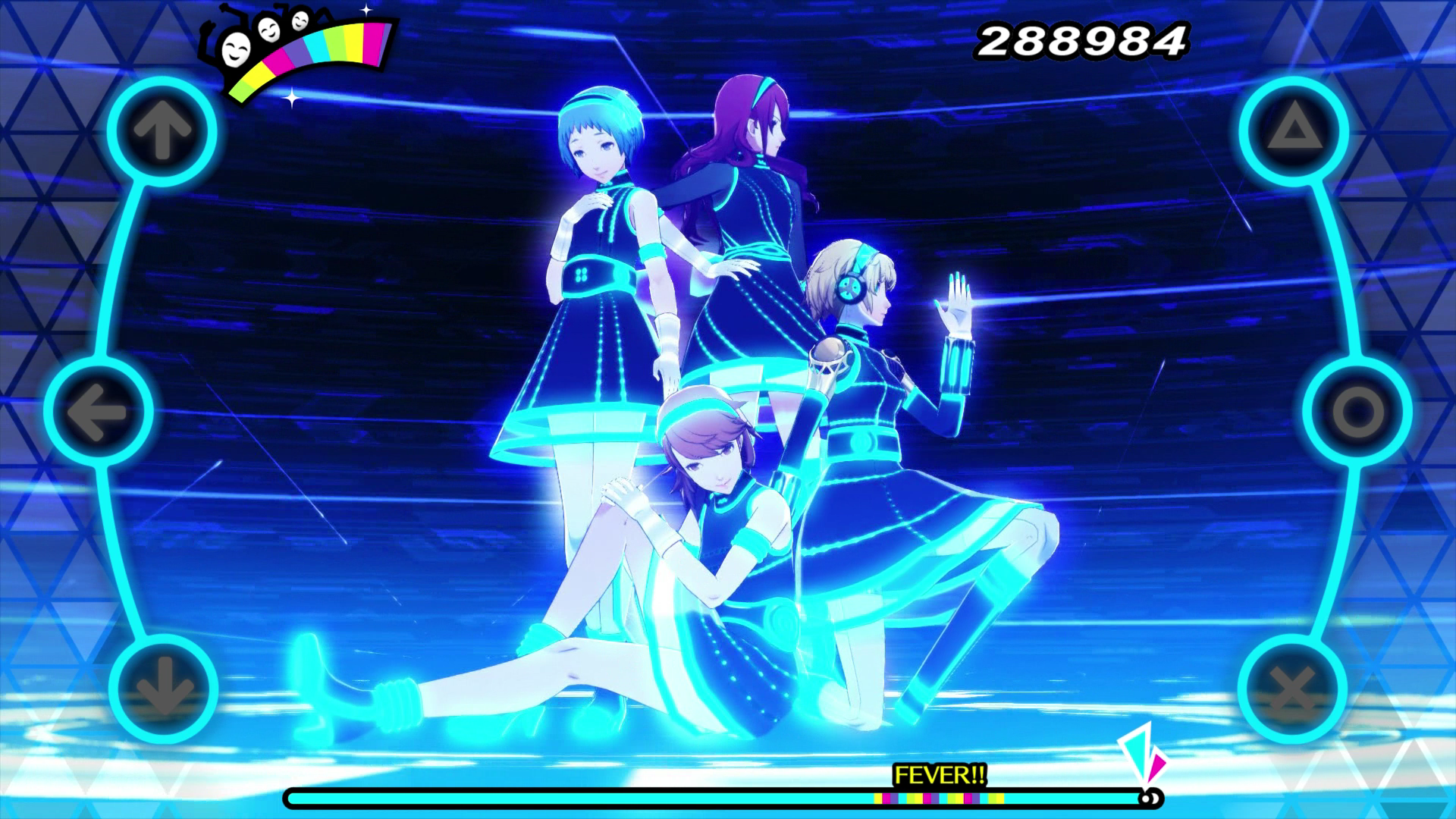 This rhythm-based dancing spin-off of Persona 3 occurs during the main campaign, where Elizabeth challenges the S.E.E.S team to a dance-off in the Velvet Room. Set within a dream, the events are canon, featuring the team performing dance routines to iconic Persona 3 tracks.
This rhythm-based dancing spin-off of Persona 3 occurs during the main campaign, where Elizabeth challenges the S.E.E.S team to a dance-off in the Velvet Room. Set within a dream, the events are canon, featuring the team performing dance routines to iconic Persona 3 tracks.
6. Persona 4 (2008) / Persona 4 Golden (2012)
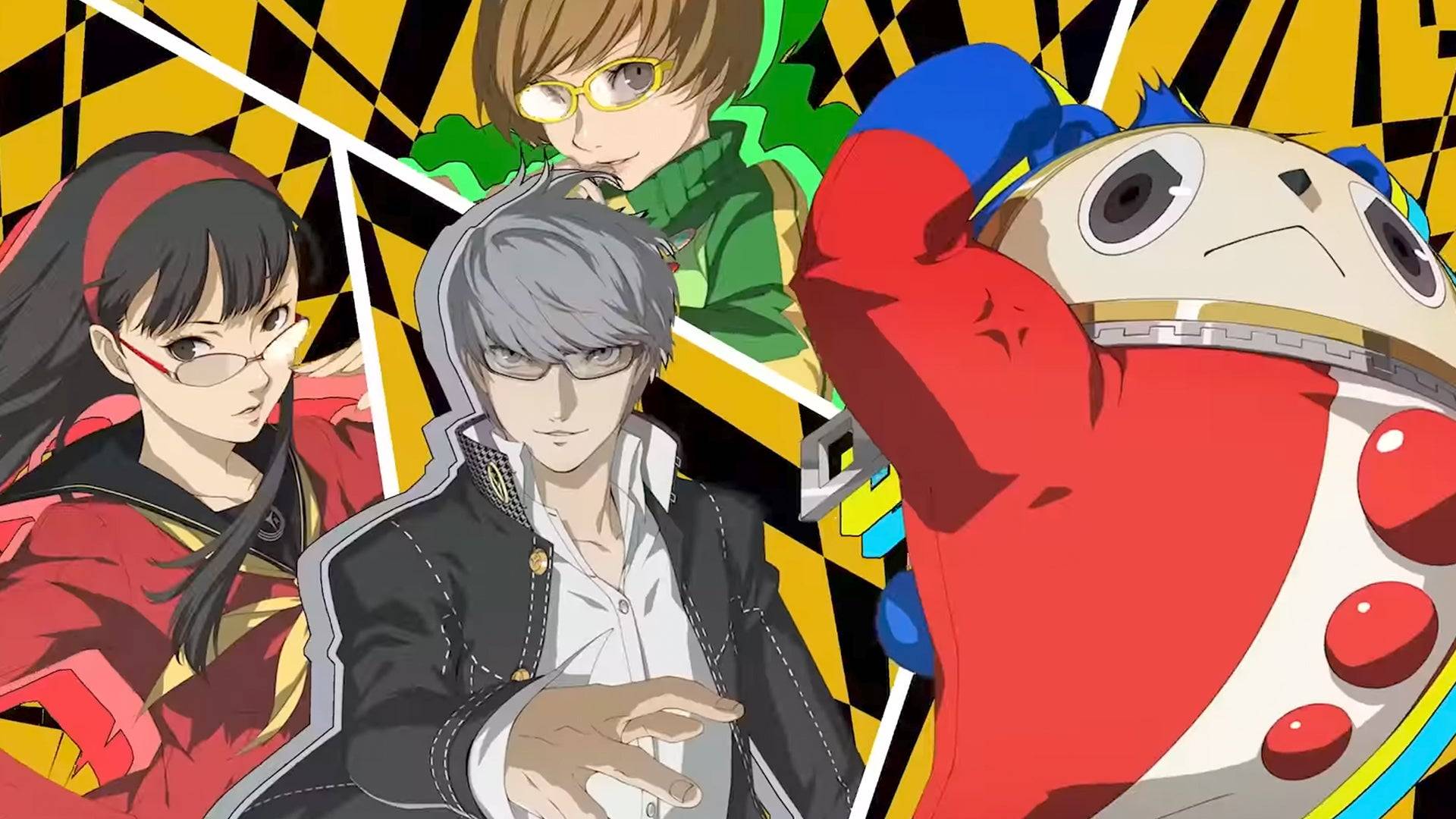 Set in the rural town of Inaba, Persona 4 follows protagonist Yu Narukami, a city high schooler who moves in with his uncle and cousin. Soon after his arrival, a series of violent murders plagues the town, which Yu and his friends link to a mysterious otherworldly realm accessible through TV monitors.
Set in the rural town of Inaba, Persona 4 follows protagonist Yu Narukami, a city high schooler who moves in with his uncle and cousin. Soon after his arrival, a series of violent murders plagues the town, which Yu and his friends link to a mysterious otherworldly realm accessible through TV monitors.
As they delve into this realm, Yu and his friends confront supernatural forces while trying to solve the murders, utilizing their Personas. Building on Persona 3's mechanics, Persona 4 also features a calendar system, where players balance social links and school life with dungeon exploration and combat.
Read our review of Persona 4 Golden.
Alternate Versions of Persona 4:
Persona 4 Golden, released in 2012, enhanced the original with new story content and an additional dungeon, widely regarded as the definitive way to experience the game.
7. Persona Q: Shadow of the Labyrinth (2014)
 Set simultaneously during the storylines of Persona 3 and Persona 4, Persona Q: Shadow of the Labyrinth features a crossover where the S.E.E.S team and the Investigation Squad are trapped in a distorted version of Yasogami High School during a typhoon and a culture festival, respectively.
Set simultaneously during the storylines of Persona 3 and Persona 4, Persona Q: Shadow of the Labyrinth features a crossover where the S.E.E.S team and the Investigation Squad are trapped in a distorted version of Yasogami High School during a typhoon and a culture festival, respectively.
Both teams unite to investigate the anomaly and find a way back to their timelines, navigating a labyrinth filled with new enemies and unraveling an original story that harks back to the series' traditional dungeon-crawler roots.
Read our review of Persona Q: Shadow of the Labyrinth.
8. Persona 4 Arena (2012)
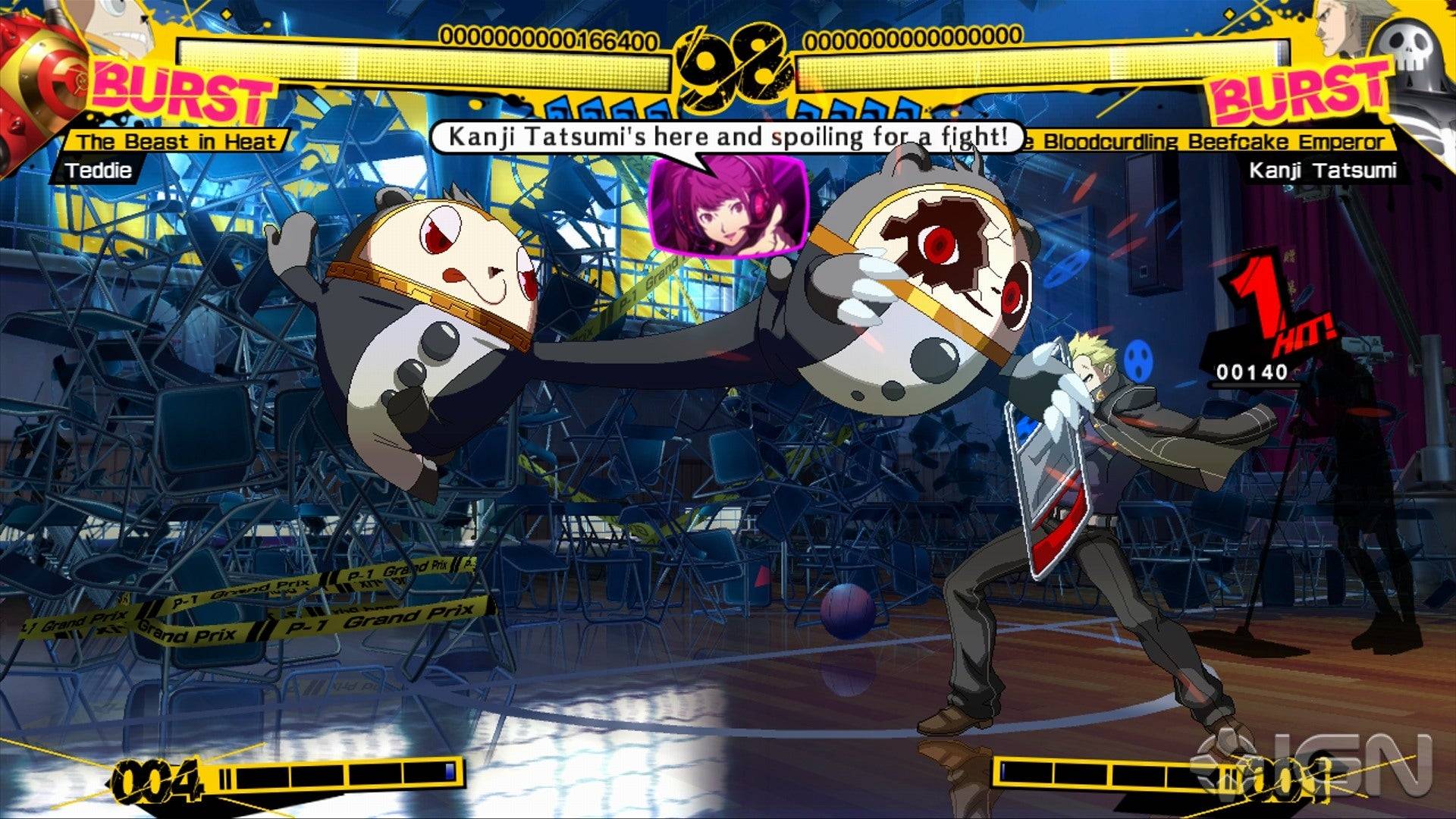 A continuation of both Persona 3 and 4's stories, Persona 4 Arena is the franchise's first major spin-off. It follows Yu Narukami's return to Inaba, where he is drawn into a mysterious fighting tournament in the TV world, facing off against allies and the Shadow Operatives, a group from Persona 3.
A continuation of both Persona 3 and 4's stories, Persona 4 Arena is the franchise's first major spin-off. It follows Yu Narukami's return to Inaba, where he is drawn into a mysterious fighting tournament in the TV world, facing off against allies and the Shadow Operatives, a group from Persona 3.
The game offers a full-fledged fighting experience with a roster of iconic Persona characters.
Read our review of Persona 4 Arena.
9. Persona 4 Arena Ultimax (2013)
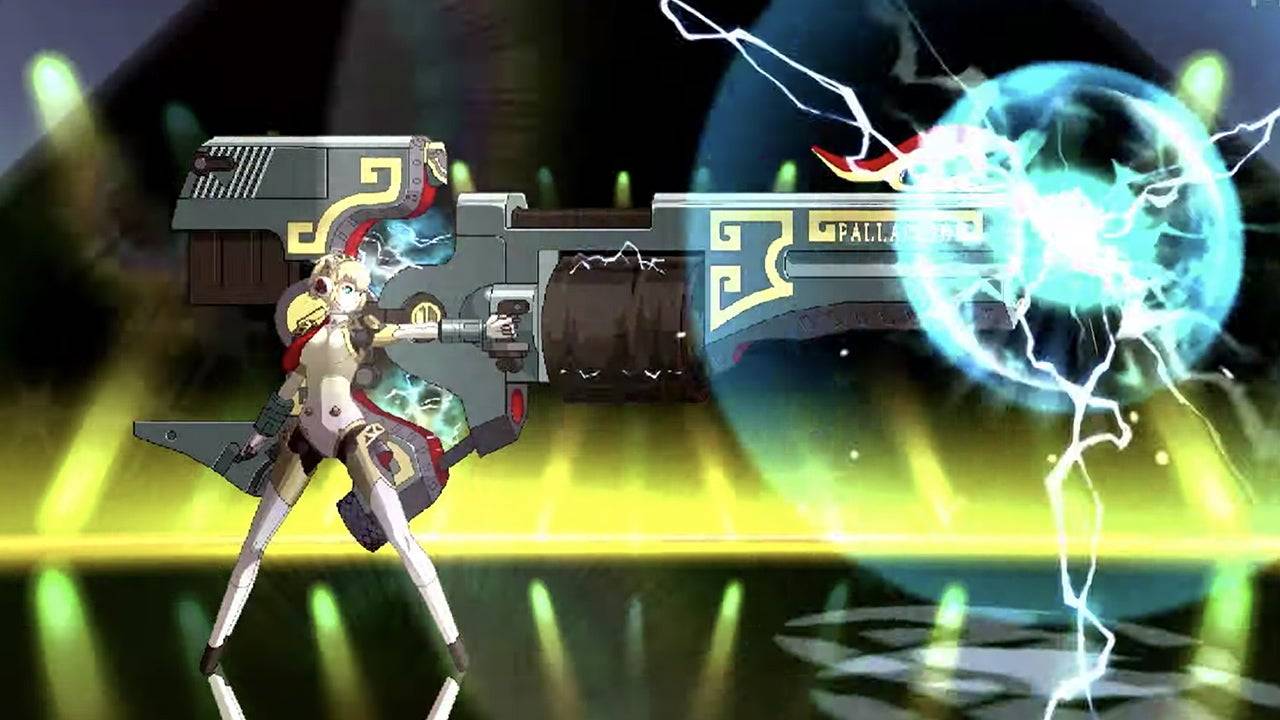 A sequel to Persona 4 Arena, released a year later, Persona 4 Arena Ultimax continues the story, with the Persona 4 squad and the Shadow Operatives teaming up to confront the forces behind the tournament. Ultimax expands the roster with returning characters like Yukari, Junpei, Ken, and Koromaru.
A sequel to Persona 4 Arena, released a year later, Persona 4 Arena Ultimax continues the story, with the Persona 4 squad and the Shadow Operatives teaming up to confront the forces behind the tournament. Ultimax expands the roster with returning characters like Yukari, Junpei, Ken, and Koromaru.
Read our review of Persona 4 Arena Ultimax.
10. Persona 4: Dancing All Night (2015)
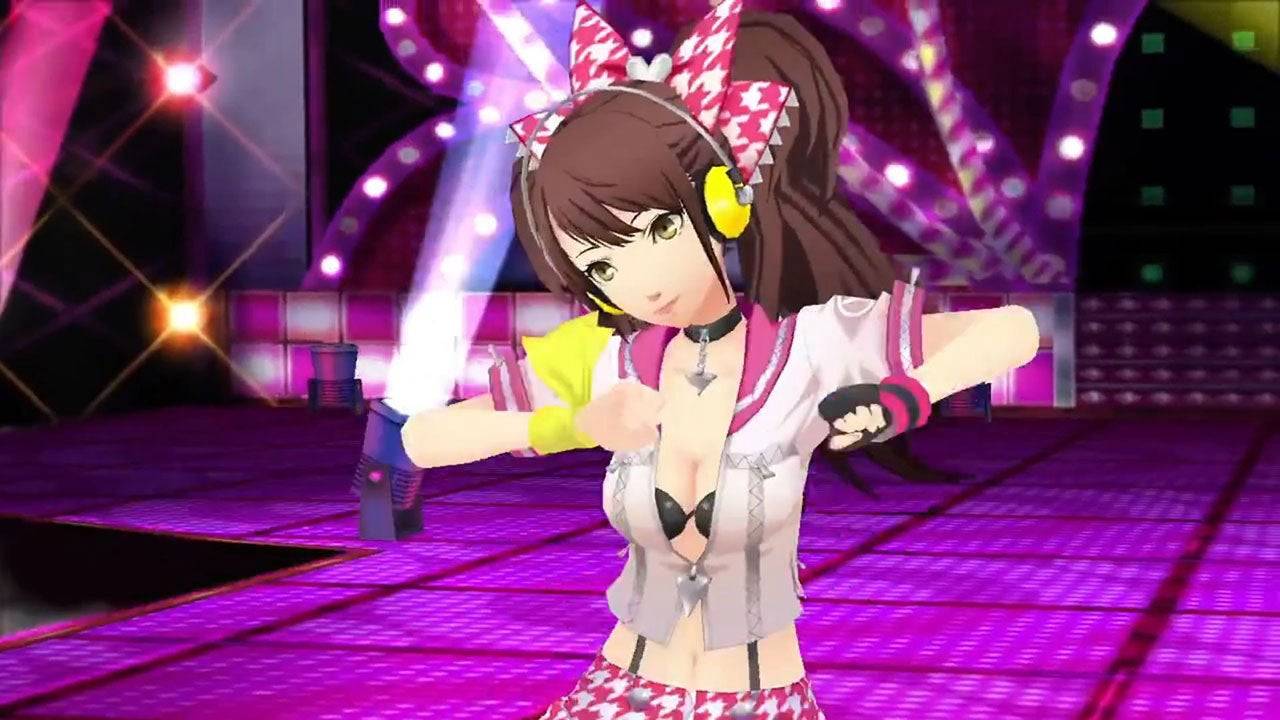 The fourth spin-off of Persona 4, Persona 4: Dancing All Night, is a rhythm-based dancing game featuring the Investigation Squad performing routines to iconic Persona tracks. Set within a canon continuation of the storyline, the team is drawn into an alternate dimension called the Midnight Stage.
The fourth spin-off of Persona 4, Persona 4: Dancing All Night, is a rhythm-based dancing game featuring the Investigation Squad performing routines to iconic Persona tracks. Set within a canon continuation of the storyline, the team is drawn into an alternate dimension called the Midnight Stage.
Read our review of Persona 4: Dancing All Night.
11. Persona 5 (2016) / Persona 5 Royal (2019)
 Persona 5, launched in Japan in 2016 and worldwide in 2017, takes players to Tokyo, where they play as a protagonist named Joker, who is on probation after being framed for a crime. As he attends high school, Joker and his friends uncover a supernatural dimension, allowing them to infiltrate mystical palaces and change the hearts of corrupt individuals.
Persona 5, launched in Japan in 2016 and worldwide in 2017, takes players to Tokyo, where they play as a protagonist named Joker, who is on probation after being framed for a crime. As he attends high school, Joker and his friends uncover a supernatural dimension, allowing them to infiltrate mystical palaces and change the hearts of corrupt individuals.
Dubbed the Phantom Thieves, the group gains notoriety in Tokyo. Persona 5 expands on the mechanics of its predecessors with expansive story-driven levels, a negotiation system, and a new dungeon system called Mementos. It became Atlus's best-selling game and significantly boosted the franchise's popularity.
Read our review of Persona 5 Royal.
Alternate Versions of Persona 5:
Persona 5 Royal, released in 2019, adds new content including a companion, dungeon, and semester, making it the definitive version of the game.
12. Persona Q2: New Cinema Labyrinth (2018)
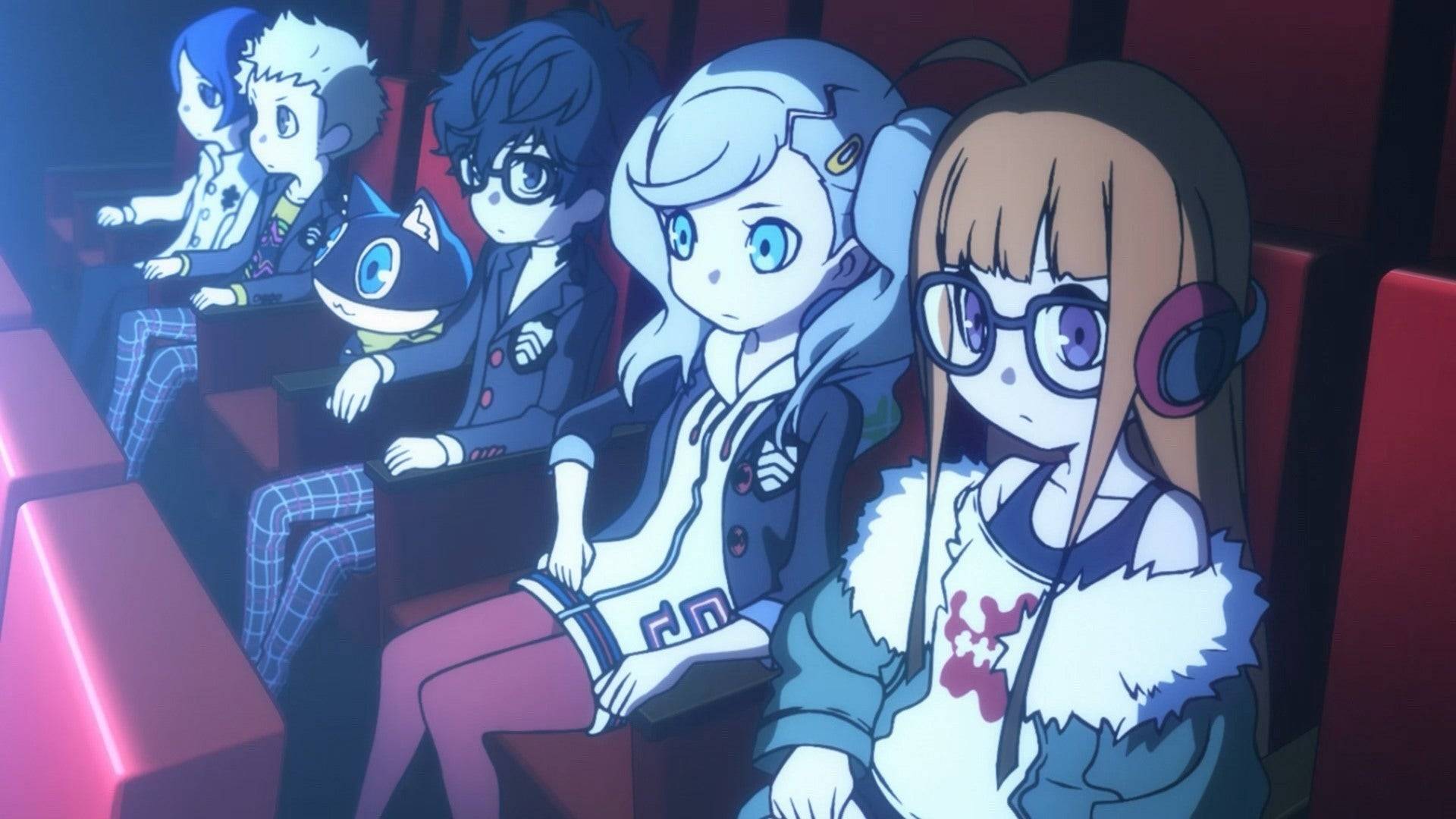 A sequel to Persona Q: Shadow of the Labyrinth, New Cinema Labyrinth features a crossover of characters from Persona 3, 4, and 5. The Phantom Thieves, trapped in a movie theater, join forces with the S.E.E.S team and the Investigation Squad to escape by entering the movies on the screen and altering their endings.
A sequel to Persona Q: Shadow of the Labyrinth, New Cinema Labyrinth features a crossover of characters from Persona 3, 4, and 5. The Phantom Thieves, trapped in a movie theater, join forces with the S.E.E.S team and the Investigation Squad to escape by entering the movies on the screen and altering their endings.
Like its predecessor, Persona Q2 occurs simultaneously within the timelines of the three main games, with characters pulled out for an adventure involving first-person dungeon exploration and turn-based combat.
13. Persona 5 Tactica (2023)
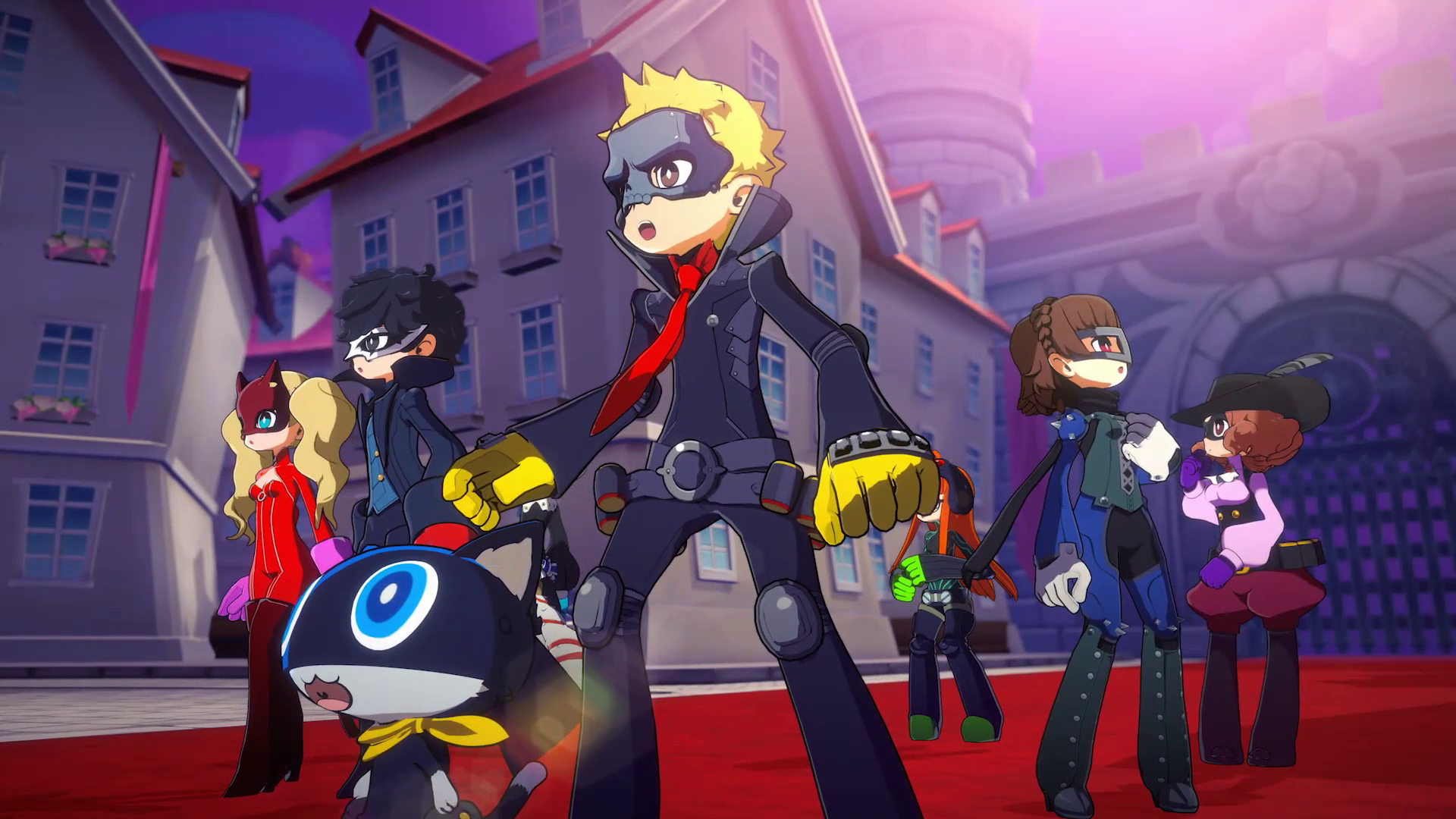 Set during the events of Persona 5, Persona 5 Tactica is a strategy-focused spin-off inspired by games like XCOM. The Phantom Thieves find themselves in an alternate realm called the Kingdoms, where they must rescue their brainwashed allies from the ruler, Tyrant Marie.
Set during the events of Persona 5, Persona 5 Tactica is a strategy-focused spin-off inspired by games like XCOM. The Phantom Thieves find themselves in an alternate realm called the Kingdoms, where they must rescue their brainwashed allies from the ruler, Tyrant Marie.
The game features a tactical grid-based combat system, with players directing three units to defeat enemies.
Read our review of Persona 5 Tactica.
14. Persona 5: Dancing in Starlight (2018)
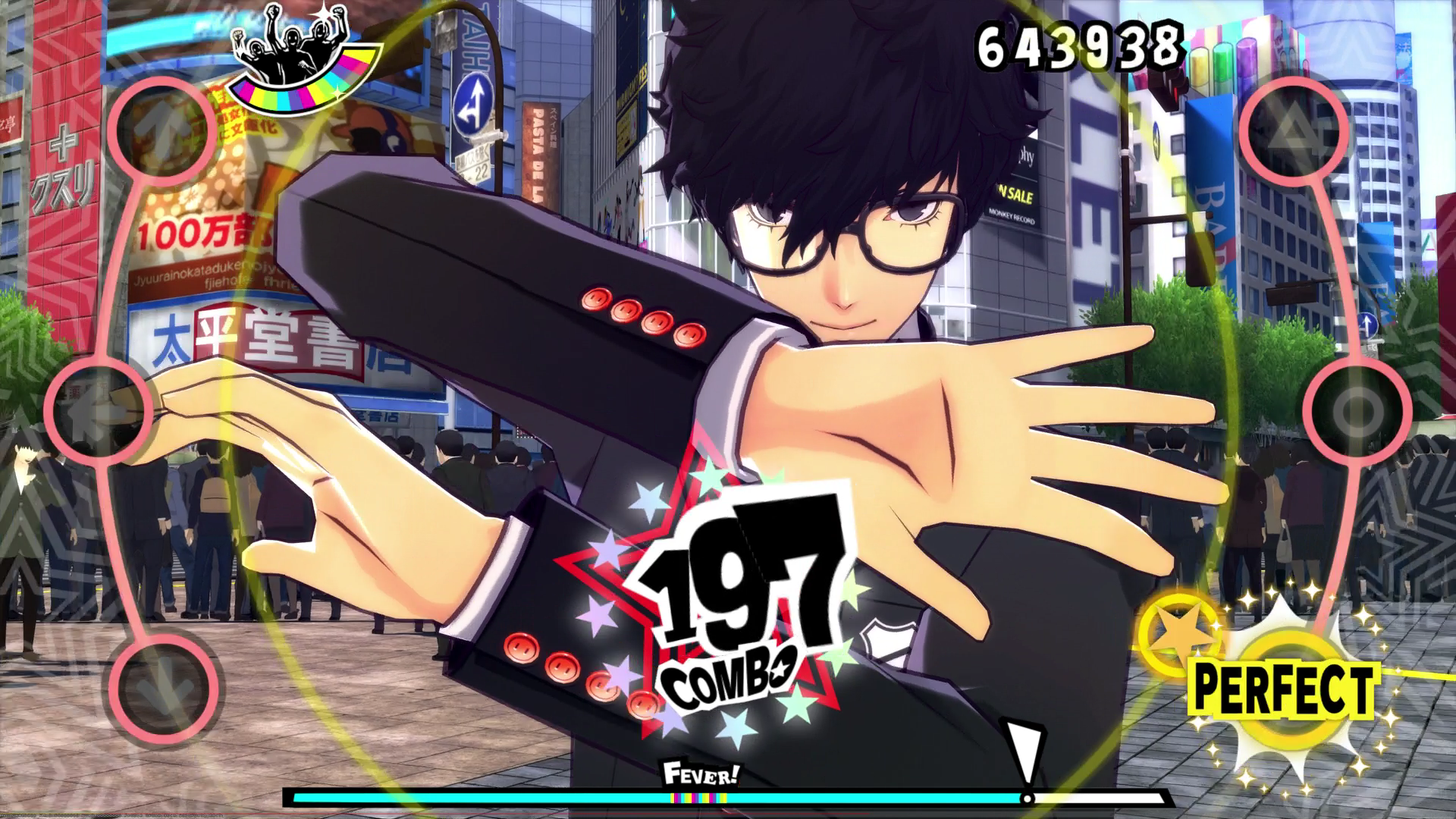 The third rhythm-based dancing spin-off, Persona 5: Dancing in Starlight, challenges the Phantom Thieves to a dance-off in the Velvet Room, orchestrated by Caroline and Justine. The game features dance routines set to Persona 5's memorable tracks.
The third rhythm-based dancing spin-off, Persona 5: Dancing in Starlight, challenges the Phantom Thieves to a dance-off in the Velvet Room, orchestrated by Caroline and Justine. The game features dance routines set to Persona 5's memorable tracks.
15. Persona 5 Strikers (2020)
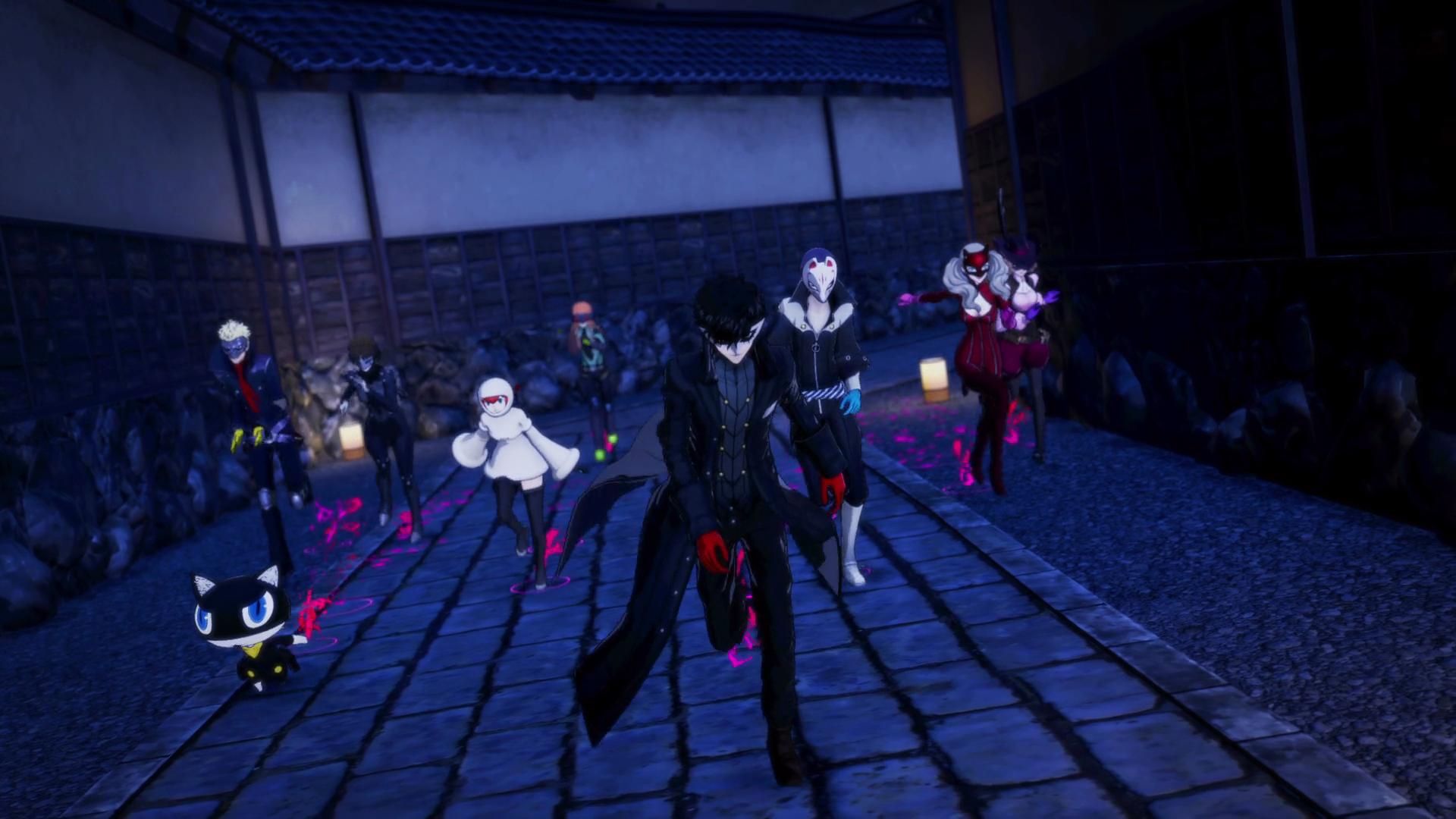 Set four months after Persona 5, Strikers follows the Phantom Thieves during a summer vacation that leads them back into the Metaverse via an app called EMMA. With the help of a new ally, they don their Phantom Thieves gear once more to uncover the truth behind EMMA and its impact on Tokyo.
Set four months after Persona 5, Strikers follows the Phantom Thieves during a summer vacation that leads them back into the Metaverse via an app called EMMA. With the help of a new ally, they don their Phantom Thieves gear once more to uncover the truth behind EMMA and its impact on Tokyo.
Strikers introduces real-time combat inspired by the Dynasty Warriors series, featuring the Phantom Thieves battling large enemy hordes using combos and Personas.
Read our review of Persona 5 Strikers.
Every Persona Game and Spin-Off in Release Order
- Revelations: Persona (1996)
- Persona 2: Innocent Sin (1999)
- Persona 2: Eternal Punishment (2000)
- Persona 3 (2006)
- Persona 3 FES (2007)
- Persona 4 (2008)
- Persona 3 Portable (2009)
- Persona 4 Arena (2012)
- Persona 4 Golden (2012)
- Persona 4 Arena Ultimax (2013)
- Persona Q: Shadow of the Labyrinth (2014)
- Persona 4: Dancing All Night (2015)
- Persona 5 (2016)
- Persona 3: Dancing in the Moonlight (2018)
- Persona 5: Dancing in the Starlight (2018)
- Persona Q2: New Cinema Labyrinth (2018)
- Persona 5 Royal (2019)
- Persona 5 Strikers (2020)
- Persona 5 Tactica (2023)
- Persona 3 Reload (2024)
What's Next for Persona?
In 2024, fans of Atlus RPGs were treated to two significant releases: Persona 3 Reload and Metaphor: ReFantazio, an all-new RPG from Atlus's Studio Zero. Following the success of Metaphor, which garnered numerous awards, Sega announced plans to further invest in Atlus and the Persona IP during a developers' Q&A session.The next Persona project to keep an eye on is the free-to-play mobile game Persona 5: The Phantom X. Launched in China, Taiwan, Hong Kong, Macau, and Korea in 2024, with a Japanese release on the horizon following a closed beta sign-up in October, a global release is anticipated, though official details are pending. Atlus describes The Phantom X as "an original story set in the world of Persona 5 [in which] new characters rise from the shadows and don the masks of the Phantom Thieves."
Anticipation is also building for Persona 6, the next mainline RPG in the series, though Atlus has yet to officially confirm its development.
 Home
Home  Navigation
Navigation






 Latest Articles
Latest Articles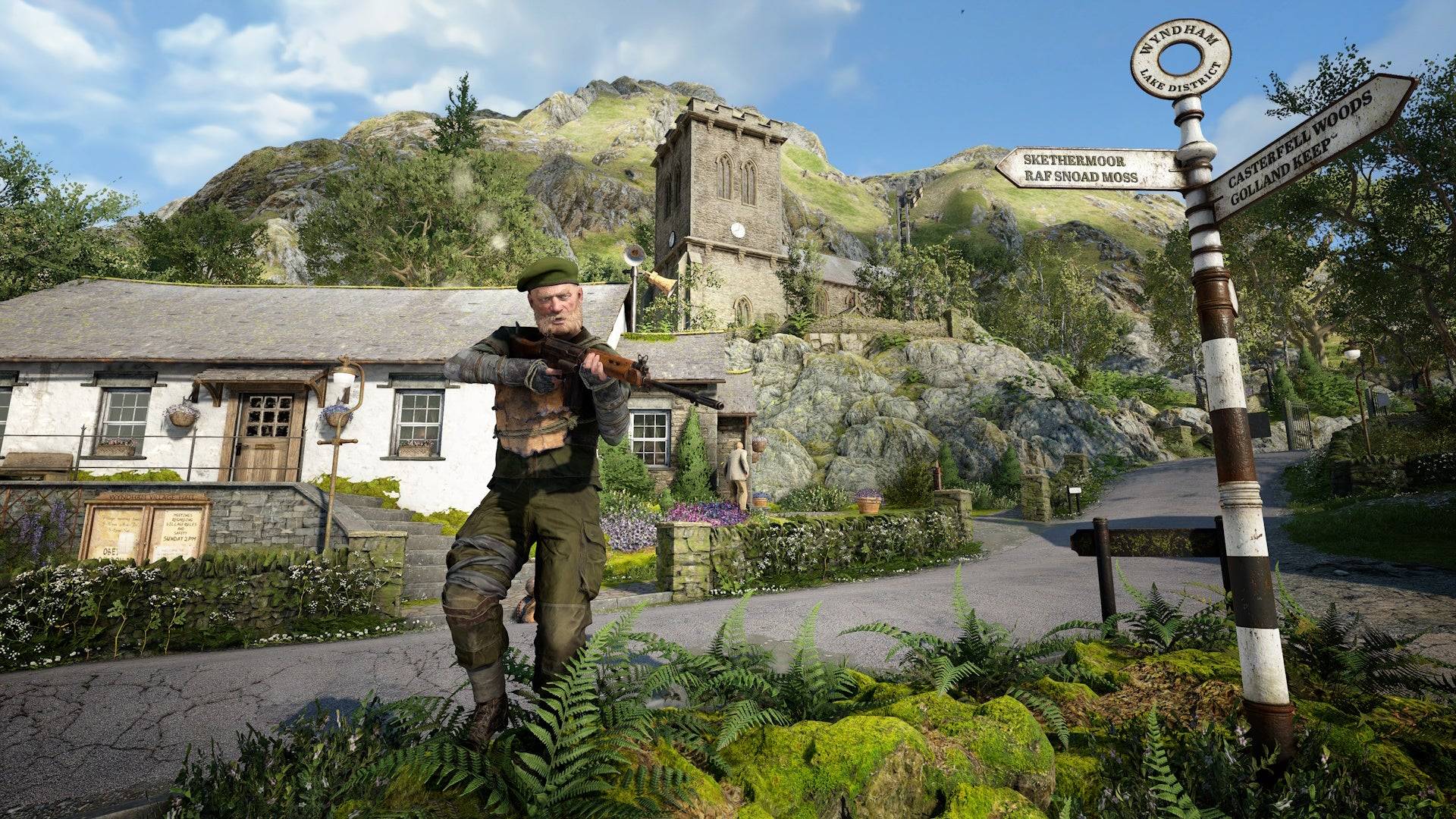









 Latest Games
Latest Games